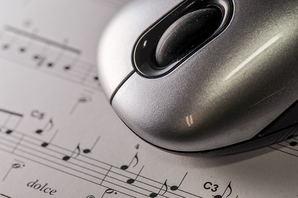 Years ago, during a music publishing seminar at which I was a presenter, a songwriter asked, “Why do I even need a music publisher? Couldn’t I just do what a music publisher does, myself?” My simple response was “will you?” It is generally true that of all the players in the music industry, the role of music publisher has one of the lowest thresholds to entry. Indeed, a financially successful music publisher’s stock in trade can sometimes be contained in a single desk drawer. However, that does not mean the job is easy or inexpensive, it just means that there are relatively few required steps for a company (or individual) to accurately call itself a "music publisher." If you are a beginning songwriter with one original song in your catalog and have not assigned any of your rights in that song to someone else, then congratulations, you are technically your own music publisher. Songwriters frequently receive advice -- solicited or otherwise -- from “concerned” individuals (including fellow writers, family members, friends, rabbis, etc.) that they should never, under any circumstances, “give” their copyrights to anyone. And, because the vast majority of publishing deals involve the assignment of copyright to the publisher, some consider music publishing inherently evil. Of course, it is never a good idea to enter into an agreement with just any publisher who is willing to sign you, simply so you can brag to your family and friends that you signed a publishing deal. An experienced music publisher should bring to the table at least four attributes that many songwriters lack: (1) an understanding of the music publishing business, including both the publisher’s traditional and developing roles in the larger music industry; (2) a set of established business practices and procedures to effectively manage a catalog and explore exploitation opportunities; (3) existing relationships in the industry; and (4) a relentless drive to both create a successful music publishing business and advance the careers of its signed writers. Notice that the last item does not say “a relentless drive to write great songs” -- that's the songwriter’s job. Writers who do not feel the same level of excitement about building a publishing business as they do about songwriting usually are better served by finding an effective publisher to fill that role. OK, I know what you’re thinking: “I thought the whole point of this article was to help musicians who decide to ‘do it themselves.’ Why are you telling me I need to have a music publisher?” Well, I’m not telling you that you absolutely have to find a music publisher to achieve success as a songwriter, nor am I trying to discourage you from developing your own music publishing company. However, I do encourage those entrepreneurial writers who make the decision to take on the role of music publisher to learn as much about the business as possible and to seek help when necessary. We all know the cliché, “knowledge is power,” and It definitely rings true in the music publishing world. Many great books on the subject are available, including Making Music Make Money: An Insider’s Guide to Becoming Your Own Music Publisher by Eric Beall and The Plain & Simple Guide to Music Publishing by Randal Wixen. Also, do not overlook Don Passman’s great, plain-English discussion of music publishing in his authoritative book, All You Need To Know About The Music Business, or Jeff and Todd Brabec’s detailed coverage in their book, Music Money and Success: The Insider’s Guide to Making Money in the Music Business. All of these books are available through most bookstores and online (be sure to confirm that you are purchasing the most recent edition). As a parting thought, one of the traits that distinguishes successful entrepreneurs in any industry is the ability to recognize one’s own strengths and weaknesses. Most successful entrepreneurs humbly admit that, as mere mortals, they cannot possibly do everything themselves. Delegation of certain tasks to others who are better skilled in particular areas is a reality of the business world. Even seasoned music publishers sometimes enter into administration agreements with other publishing companies that are better able to perform administrative functions, leaving the non-administrative publisher free to concentrate on creative development and seeking exploitation. Finally, although entrepreneurial songwriters certainly can acquire knowledge of the publishing business, established music publishers are already in the game, and they can sometimes open doors that might otherwise remain closed to a songwriter just getting started as a publisher. Regardless of the path you choose, you owe it to yourself and your music to make an informed decision.
0 Comments
 “Nobody writes alone in Nashville.” That might be a slight overstatement, but most musical compositions (or "songs") -- regardless of where written -- are the product of more than one songwriter. Unfortunately, even many career songwriters do not fully understand the legal implications of co-writing. When two or more writers (or “authors” in copyright parlance) intentionally join forces to create a new song (e.g., during a writing session) the scenario is pretty straightforward. 17 U.S.C. § 201(a) provides that the resulting musical composition is a joint work if, at the time of creation, the authors intend for their contributions to be merged into a single work. Absent a written agreement (e.g., a “split letter”) to the contrary, the authors own the composition collectively as tenants-in-common, with each owning an equal and undivided interest in the entire song. In short, an “undivided interest” means that no author owns exactly what he contributed, but as a joint work, each author owns an equal share of the entire song, unless otherwise agreed in writing. Each author (or the author’s assignee -- typically a music publisher) may enter into non-exclusive licenses regarding the entire composition, subject to the continuing obligation to account to the other owners for their share of revenue from the commercial exploitation (use) of the work. Labels should obtain a mechanical license from each owner if it is a first use of the composition; however, as a practical matter, most record labels will record the song, and once the copyright owner accepts royalties, it may constitute an implied license. Few people object to having a song cut and being paid. Determining if a song is a joint work can be trickier if it was created from contributions by authors at different times, instead of during a co-writing session. For instance, if a lyricist writes lyrics and a composer sets those lyrics to music, without the lyricist’s knowledge or intent to create a joint work, the result is not likely a joint work, but rather a derivative work, which raises copyright issues beyond the scope of this article. Most courts require that each author contribute at least enough creative expression to make the contribution protectable under copyright (i.e., not merely an idea or title), and where the contributions are made at different times, there must be an agreement in writing demonstrating the parties’ intent that the contributions were intended to be part of a joint work. Also, although each joint author must contribute some creative element to the final product, each author need not contribute the same amount. Most professional songwriters adhere to the standard practice of scheduling dedicated co-writing appointments, which limits potential ambiguity over copyright ownership. When ownership of a particular work is questionable because of time or geographic distance between the authors’ contributions, it is best to clarify each author’s intent early and in writing. It's also a good idea not to wait until a song is a hit to work out an agreement, as writers who were friends when writing may become quite disagreeable when money is at stake.  After working with many talented songwriters over the years (and being a “songwriting hack” myself), I know that writers never know when or where a great song idea will materialize. To paraphrase one extremely talented writer I know, “Songs are just floating in the air and you have to grab them when you can.” Don’t count on remembering the next morning that perfect hook that comes to you in a dream. Take a tip from the Boy Scouts and “be prepared.” Commercially successful writers understand this concept very well. Back when I still had delusions of writing that one big “evergreen” song and retiring to an island, I kept digital voice recorders (I know, I'm old) in my car and briefcase so I could capture my song ideas in an instant. Today, savvy songwriters can take this concept several steps further by establishing a multi-step digital songwriting workflow. Apple iPhone or iPad users can capture the basic elements of a song “on the fly” in the iOS version of GarageBand and later transfer the project to GarageBand or Logic Pro X on a Mac for more detailed production and sweetening. I have heard some impressive demos (and even released singles) that were produced in GarageBand, but the real power of this workflow is the ability to move files from the capture device to a more robust DAW ("Digital Audio Workstation," for those following along at home). Exporting GarageBand iOS projects into Apple Logic Pro X is a very streamlined process. Moving complete projects to other DAWs (e.g., Pro Tools) might involve a few steps, but is a far superior alternative to being forced to recut every track in the studio. Of course, DAWs also are available on non-iOS devices. It is a good practice to check the export functionality on any smartphone based DAW before download. There are many resources available to take even the most technologically illiterate composer from "zero to demo" and beyond in no time. The point is, when that song comes into your head out of thin air, you need to get it down so you can remember that original inspiration. It might be enough to just jot on the back of your hand “that song about mountains,” but probably not. Having a way to record the nuances of your inspiration will make finishing your song much easier. |
AuthorL. Kevin Levine is the founder of L. Kevin Levine, PLLC (go figure), a boutique entertainment, copyright, trademark, and business law firm in Nashville, Tennessee. A lifelong musician who grew up in his family's music store, it was inevitable that Kevin would build his legal career in entertainment and business. Archives
June 2016
Categories
All
|


 RSS Feed
RSS Feed